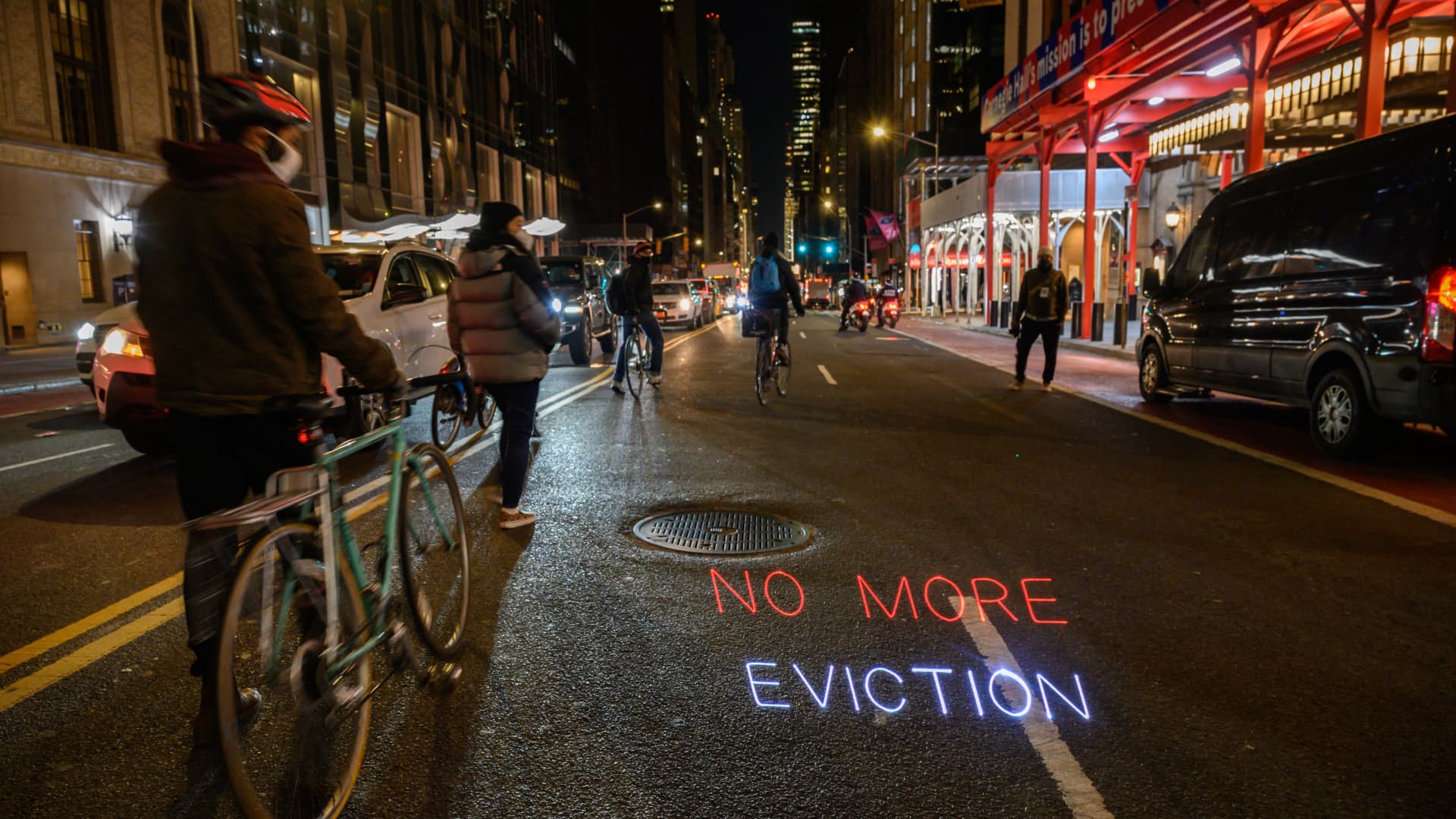Between rents rising and most pandemic-era eviction bans having expired, the number of tenants coming home to find notices on their doors is picking up.
In just the first week of January, the Eviction Lab at Princeton University has counted more than 9,300 evictions in the nine states and the 32 cities it monitors.
In New York City alone, nearly 4,400 families and tenants have been removed from their apartments since January 2022, when a ban on evictions lifted.
“We’ve seen in recent months an increase in eviction filings in the areas we track, sometimes back towards pre-pandemic averages and sometimes worse,” said Jacob Haas, research specialist at the Eviction Lab. “Eviction can be a traumatic, destructive experience for the families that face it.”
If you are behind on your rent or facing displacement, here’s what housing experts recommend you do.
Familiarize yourself with tenant rights
Although it’s a tough time for tenants with rents soaring, the pandemic has also ushered in a new set of protections. It’s worth researching and familiarizing yourself with any rights to which you may be entitled, experts say.
In certain cities, for example, landlords are now limited in how much they can raise your rent. If you’re facing eviction because of an increase that was illegal, it’s worth knowing: You may be able to bring this up in housing court, or with your landlord.
More from Personal Finance:
Here’s the inflation breakdown for December 2022 — in one chart
IRS to start 2023 tax season stronger, taxpayer advocate says
Social Security checks to include 8.7% cost-of-living adjustment this month
In some places, you’re entitled to a set amount of notice with an eviction, such as at least 90 days in specific cases in Portland, Maine. During the school year, educators and families with school-age children recently got new eviction protections in Oakland, California.
Meanwhile, if your landlord has raised your rent above a certain amount, you could be eligible in a few cities, including Seattle and Portland, Oregon, to get some of your moving costs covered.
Work with a lawyer
If your landlord has moved to evict you, housing advocates recommend that you try to get a lawyer as soon as possible.
One study in New Orleans found that more than 65% of tenants with no legal representation were evicted, compared with just 15% of those who had a lawyer with them at their hearing.
You can find low-cost or free legal help with an eviction in your state at Lawhelp.org.
In a growing number of cities and states, including Washington, Maryland and Connecticut, tenants facing eviction have a right to counsel. You can find a longer list of those places at civilrighttocounsel.org.
Consider your options for rent
Most rental assistance programs that opened during the pandemic are now closed, but some are still accepting applications.
On the National Low Income Housing Coalition’s website, you can find a state-by-state guide of relief options and their status.
It’s not a strategy experts recommend, but some tenants are using their credit cards to cover their rent. Few landlords or property managers accept plastic, so you’d have to find a third-party processor, such as Plastiq or PayPal.
But this option should only be used in dire situations, said Ted Rossman, a senior industry analyst at CreditCards.com.
“The biggest potential issue is carrying a balance and paying interest on your rent,” Rossman said. “This can make an already sizable expense much more substantial.”
Instead, he recommends tenants ask their landlord for an extension or payment plan. Other ways to come up with rent can include borrowing from family members and friends, or from your retirement plan, Rossman said.
